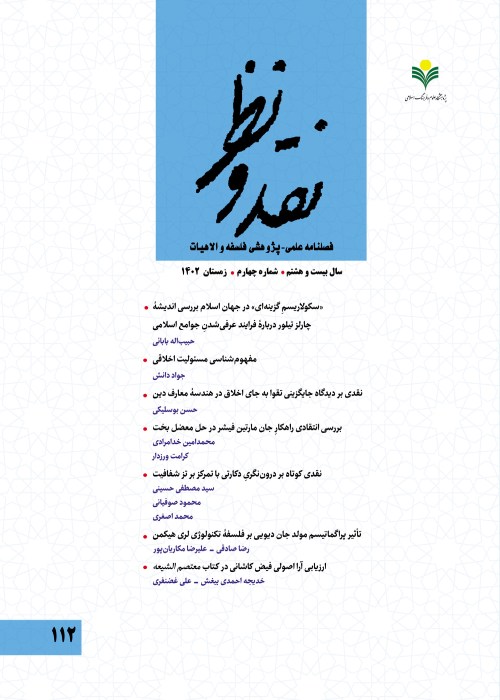John Rawls and the Method of Reflective Equilibrium in Ethics
Author(s):
Abstract:
In his discussion of the old problem of induction, Nelson Goodman refers to something that was later called the method of reflective equilibrium by John Rawls and was employed by him in order to infer a theory of justice in the domain of political philosophy. He claimed that in a liberal society, the selection of a particular principle regarding justice requires an arbitrary preference. To solve the problem, Rawls considers an initial situation through the developments of which people come to an agreement over the normative principles of justice. For him, these principles should be reconciled with our moral judgments concerning particular cases via the method of reflective equilibrium. The employment of this method came to be criticized by some philosophers and defended by others. It seems that ethical problems, and in particular, problems of applied ethics, cannot be solved only by an appeal to moral theories and abstract moral principles. Thus despite many controversies about this method, it is so useful in the field of ethics, and in particular, applied ethics, that some people have claimed that it is the only useful method in ethics.
Keywords:
Language:
Persian
Published:
Journal of Philosophy & Theology, Volume:21 Issue: 1, 2016
Pages:
4 to 32
magiran.com/p1575913
دانلود و مطالعه متن این مقاله با یکی از روشهای زیر امکان پذیر است:
اشتراک شخصی
با عضویت و پرداخت آنلاین حق اشتراک یکساله به مبلغ 1,390,000ريال میتوانید 70 عنوان مطلب دانلود کنید!
اشتراک سازمانی
به کتابخانه دانشگاه یا محل کار خود پیشنهاد کنید تا اشتراک سازمانی این پایگاه را برای دسترسی نامحدود همه کاربران به متن مطالب تهیه نمایند!
توجه!
- حق عضویت دریافتی صرف حمایت از نشریات عضو و نگهداری، تکمیل و توسعه مگیران میشود.
- پرداخت حق اشتراک و دانلود مقالات اجازه بازنشر آن در سایر رسانههای چاپی و دیجیتال را به کاربر نمیدهد.
In order to view content subscription is required
Personal subscription
Subscribe magiran.com for 70 € euros via PayPal and download 70 articles during a year.
Organization subscription
Please contact us to subscribe your university or library for unlimited access!


